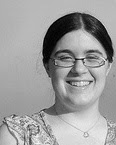Last Saturday -- December 8 -- some teammates and I spent an afternoon in Bethlehem. It was supposed to be some time to relax and get away from the ways in which the military occupation of Hebron manifests itself. In Hebron (or Al-Khalil, in Arabic,) the sights of any given day are checkpoints, metal detectors, turnstiles, and Israeli soldiers (who sometimes patrol through the Old City.) And, of course, there are the settlement enclaves, some of which are planted directly on top of Hebron's Old City.
In Bethlehem, the occupation is different. Instead of soldiers and checkpoints, the occupation of the Palestinian territories manifests itself in the wall surrounding the city on three sides and in the settlements perched on the Bethlehem hillside.
So, between a stick in the eye and a stranglehold, a stranglehold is a nice change of pace.
We arrived in Bethlehem and looked around some souvenir shops. One of the store owners was giving us an update on Bethlehem’s situation. Right now, it is a 10 km journey to ship goods (such as olive wood carvings, found in many tourist stores) from Bethlehem to Jerusalem. Here is an oversimplified map of the journey:

(On this map, the line from Bethlehem to Jerusalem is straight. In reality, Palestinians often need to travel on long circuitous routes – there are roads on which Palestinians, if they are able to on them at all, need a special permit on which to travel.)
But, the storeowner told us, this is changing. Israeli authorities are soon going to require goods from Bethlehem to go through the checkpoint at Tarqumiya – southwest of Bethlehem – now making the journey 60 km. Here is the new (again, oversimplified) route that goods will have to take to get to Jerusalem:

Of course, this increases the price of shipping for shops, an added financial burden Palestinians who already bear too much as a result of the occupation. After explaining these new travel restrictions, my teammate commented, "So much for Annapolis [peace summit]." The store owner chuckled and replied, with typical dry Palestinian humor, “This is a new gift.”
This is life here. I wanted to scream (or cry.)
A teammate once told me that Palestinians, after hearing him talk about CPT’s work, would often ask, “Wein salaam?” – “Where is peace?”
That’s what I’m wondering, too.
-----------
(The above maps are edited from those produced by UN OCHA – United Nations Office for the Coordination of Humanitarian Affairs. For a the full map, click here.)




2 comments:
Am I just getting out of touch with Palestinian political geography or is that a totally random checkpoint?
Btw, I'm totally telepathic...
My understanding is that this checkpoint was *supposed* to be the checkpoint for safe passageway from Gaza to the West Bank/occupied Palestinian territories. It never opened for this use. Now, I have heard a teammate and a local human rights worker argue that this may, over time, become the one checkpoint for all goods leaving (and entering? Not sure.) from the southern Palestinian territories.
Meesh quois. Not good. Enshallah (God willing), it won't happen. Enshallah.
Post a Comment